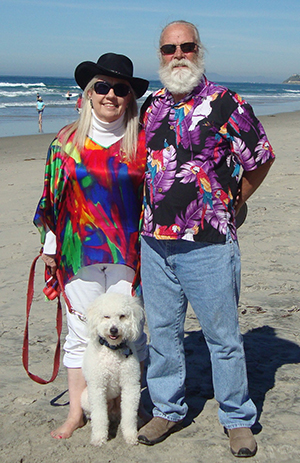As I step away from the Institute, I want to borrow the academic tradition so beautifully shared by Randy Pausch: The Last Lecture.
It has been amazing to be part of first hospice and now palliative care, both in the U.S. and Canada, as this important movement has evolved. Once obscure and unknown, today palliative care is growing not only in the health care arena but in consumer awareness as well. Palliative care is poised to take flight and transform health care; first for those with serious or chronic illness but ultimately, if we do it right, for everyone.

I am honored to have had the opportunity to be part of this evolution. But as I step back from the daily fray, I would like to offer two cautions to those who carry this work forward. First, those of us in the field have recognized the negative impact of hospice’s association with dying, and the perception it is the last resort when there is “no hope.” Let us be careful not to make the same mistake with palliative care. It is and must remain about living.
It’s About Living Well and …
It is about living well and yes, ultimately, dying well. But in order to die well, we must first live well until we die. What living well means is up to each individual, but as palliative care professionals we must help our patients first and foremost live well. If we can do that, it is far more likely they will also die well.
Because of the shortage of skilled palliative care teams and practitioners of all disciplines, in many settings palliative care has been defined as care for those with less than a year to live. I understand the workforce issue and the necessity for boundaries, but these limitations set up palliative care to be as negatively perceived as hospice. Which leads to my second caution …
It is tempting, and easy, to focus on the role of medical providers (physicians, advance practice nurses, physician assistants) as the key to palliative care. While these professionals are unquestionably vitally important, the reality is that when you move palliative care upstream and reach those in need earlier, there is an increased opportunity for other disciplines to play a greater role.
We all agree that palliative care is about whole person (and family!) care. Moving palliative care upstream and focusing on helping patients and families live well means we need to reframe our ideas about the role of other team members in the provision of care.
Reframing With Benefits
Programs with an upstream focus can look at innovations such as using a social worker as their referral locus. In this example, those that need medical management will get cared for by the physician/APRN/PA, but those that do not (over 40% or more in some instances) will be handled by the other disciplines. It is a reframing that offers many benefits. It can increase the number of patients served by a team. It offers the team a great sense of transdisciplinary collaboration, a more level playing field. It may speed response to referrals. With research, I think it will prove to increase patient satisfaction.
 As someone who has worked for 50 years and loves my work, the prospect of retiring has been daunting. I have compared it to how Indiana Jones must have felt in Indiana Jones and the Last Crusade when he stands on the edge of a chasm he must cross to reach the grail.
As someone who has worked for 50 years and loves my work, the prospect of retiring has been daunting. I have compared it to how Indiana Jones must have felt in Indiana Jones and the Last Crusade when he stands on the edge of a chasm he must cross to reach the grail.
I know there is a path and that it will become clear but it is daunting nonetheless! But this view framed what I am choosing to do in a very negative light. Have no doubt … I am ready to retire. Maybe not forever but it is time to take a pause and then see what unfolds.
Opportunities and Possibilities
The opportunities and possibilities are wonderful … time to spend in the studio with my glass, time for getting back into shape (that may be wishful thinking!) and time for my husband and animals. All good things … and these are just a few of the many possibilities!
So, I have decided to reframe how I am looking at retirement and see it as “taking flight!” Likewise, I invite all of you who read this to work to reframe how health care, the public and, yes, YOU, look at palliative care. From a year before dying to living well; from provider-focused to fully and creatively engaging all team members at the top of their practice.
In this light, with the simple act of reframing, for me and for palliative care what lies ahead can focus on the very best of possibilities and make them happen.
In the meantime, I am deeply grateful for the wonderful teachers, mentors and colleagues who have led the way or joined me on the path. I am not disappearing. I am simply taking a breath and leaving the Institute and its wonderful team in the hands of another amazing leader, Jennifer Ballentine. It will be well tended and grow beautifully in her accomplished hands.
In the spirit of reframing what has been into what will be … let us all take flight!
Helen McNeal




